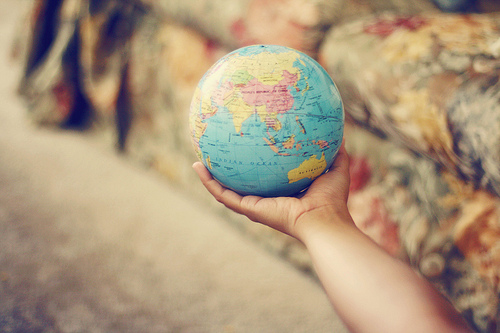
I got a lot of raised eyebrows when I first told my friends and family about my proposed travel plans. Traveling through and living in the developing world proved some of the toughest and most rewarding experiences of my life. Here are some tips and things to think about if you are considering a trip of your own.
1. Be Not Afraid
The most common advice that I received from well-meaning family and friends was to WATCH OUT. As Americans, we’ve been taught by news media to fear the world. While you definitely don’t want to throw common sense out of the window, there’s no reason to go canceling your airline tickets. When traveling in the developing world, take the same precautions you would use when traveling in any major city:
- Take only the money/credit cards on an outing that you think you’ll need.
- Do not carry an original copy of your passport. Local police will usually be fine with a color copy showing the page with your photo and your current entry stamp or visa allowing you to be in the country.
- Do not leave valuables unattended on the beach while you swim or on a restaurant table while you use the restroom. This includes laptops or tablets!!
- Do not hang your purse or traveling bag on the back of your seat in a restaurant while eating.
- Don’t be flashy. Dress sensibly for the outing that you’re on and don’t wave money around unless you also plan on giving it out.
2. Learn the Language
You don’t need to spend months or years preparing for your trip, but at least pick up a few phrases of the most common local language. This will allow you to interact with the people who live where you are traveling. This is the greatest gem of traveling, because as you get to know the individuals populating the far corners of the world, we realize that we have a lot more in common than we do differences. It’s also a great way to confront and release stereotypes we may not even realize we had, like thinking that many foreigners hate Americans.
3. Decide on a Policy for Beggars
It is heartbreaking to be confronted with a level of poverty completely unknown in the Western world. It’s not uncommon to see adults and children dressed in rags, with tatters of shoes or barefoot, dirty hands and swollen bellies as you go about seeing the sites. Since you are sure to encounter people begging, it’s best to decide on a policy before you go.
There are strong opinions on both sides — some believe that giving to child beggars perpetuates their being used as income earners rather than being sent to school, and others believe that it is cruel not to give. I had one friend who would give to any child who directly asked for something, and another who would give only if offered something in return like a handmade bracelet or a poem. If you do decide to give, it’s best to keep an easily-accessible pocket full of coins or small bills for just this purpose that is separate from your wallet or billfold. Remember, whether or not you feel wealthy, you just might be the equivalent of a millionaire when compared with the local standard of living.
4. Support the local economy.
Often, the larger resorts and hotels that offer the most comfortable accommodations are foreign-owned. So are the restaurants and cafes that serve the food that reminds you of home. While they do provide jobs for locals, the wages are often dismally low. The best way for you to give back to the economy of the country you’re visiting is to travel a bit off the beaten path. Eat a meal at a local restaurant. Search out an artisan and buy directly from him. Stop in at a small bodega to stock up on drinks for a day out on the town. The locals you see will be pleased to interact with visitors and you will feel better knowing that you’ve helped make somebody’s day.
5. Don’t be so eager to get a bargain
Remember, the people you are negotiating with are living hand to mouth. That could mean the thing you buy might be the only item they’ve sold all week, or all month! Please try to be fair in your hunt for a bargain. I’ve seen many foreigners so focused on finding the lowest possible price that the locals will end up selling at a loss, figuring that some money is better than none. The foreigner walks away feeling like they’ve got a good deal, but the local is often left with only enough money to put food on the table, but not enough to reinvest in the business.


